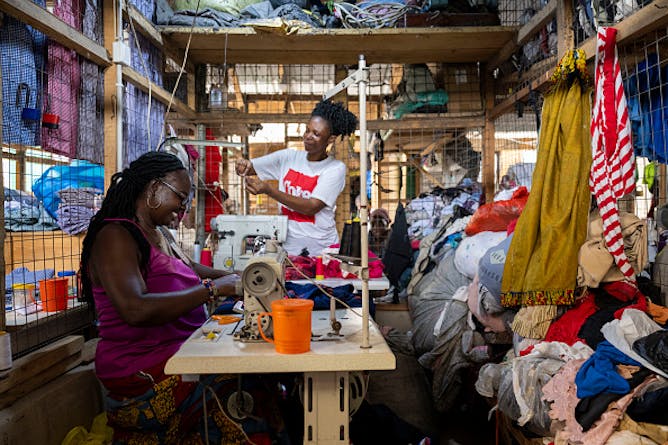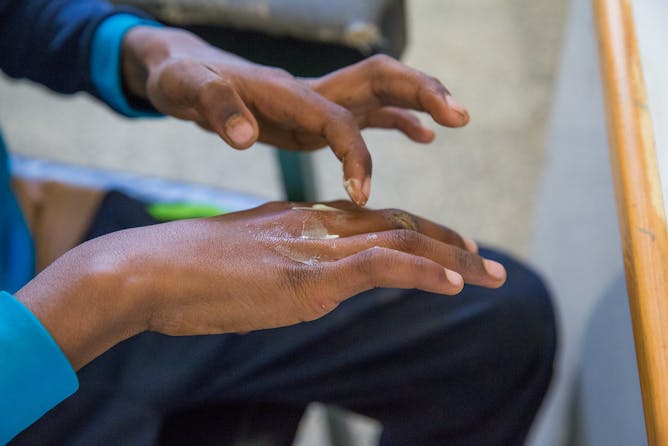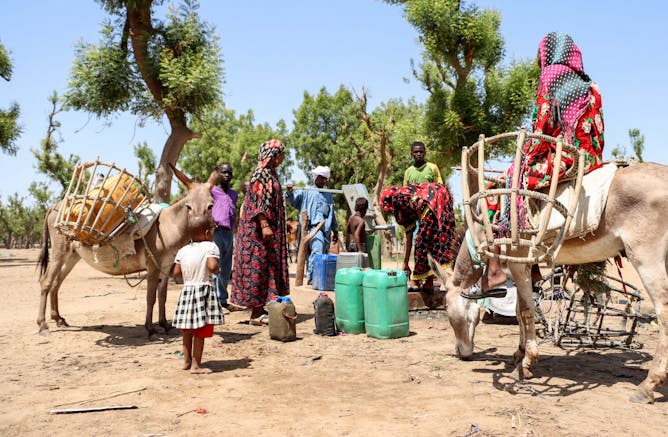|
Bitter lessons drawn from the past have shown that people suffer when business practices prioritise profit over health. The most obvious example is the tobacco industry, which was able to freely sell products that harmed people’s health for decades until science eventually caught up with it. In a recent series of articles published in The Lancet, academics from around the world explored the conflict between the drive by corporations to maximise profits and the impact this is having on our health. Today we feature one of them. Teurai Rwafa unpacks a paper that presents startling new findings. They include the fact that four industries (tobacco, unhealthy
food, fossil fuel, and alcohol) are responsible for at least a third of global deaths annually.
In May last year the government in Ghana introduced a tax on mobile money transactions. Known as the e-levy, the tax targeted the informal sector. About 90% of total employment in the country is informal. The tax has come under attack because it was designed to target the least well off in Ghana. New research shows that the tax is indeed regressive – those earning the least pay a larger share of their earnings towards the levy. And it’s deeply unpopular. The authors of the research – Mike Rogan, Max Gallien, Nana Akua Anyidoho and Vanessa van den Boogaard – suggest the government should go back to the drawing board.
If you haven’t done so yet, please take our survey and give us some feedback.
Take our survey
|

|
Ina Skosana
Health + Medicine Editor (Africa edition)
|
|

Teurai Rwafa, University of the Witwatersrand
The public bears the suffering and costs of the global epidemic of noncommunicable diseases, and the rapidly accelerating climate emergency.
|

Mike Rogan, Rhodes University; Max Gallien, Institute of Development Studies; Nana Akua Anyidoho, University of Ghana; Vanessa van den Boogaard, Institute of Development Studies
Domestic resource mobilisation cannot be achieved by over-taxing the livelihoods of the most vulnerable workers in the informal sector.
|

Michael Head, University of Southampton; Bayaki Saka, University of Lome; Palokinam Pitche, University of Lome
Neglected tropical diseases of the skin are stigmatised, and may affect an individual’s quality of life
|

Sibusiso Zuma, University of South Africa
Clinics without pharmacist assistants were more likely to have erratic medicine supply management practices.
|
TC Afrique
|

Abdallah, Mahamat Nour, Université de N'Djamena (Tchad)
Les défis liés à l'accès à l'eau sont aggravés par les changements climatiques qui ont une incidence sur les ressources en eau dans la région sahélienne.
|

Ananya Jahanara Kabir, King's College London
Les cinq adolescents iraniens ont été arrêtés et contraints de s'excuser - mais le défi de danse continue à devenir viral.
|
From our international editions
|
-
Dan Arbell, American University
Israel’s leader, Benjamin Netanyahu, has fired the country’s defense minister. That deepened the country’s crisis over proposed judicial reforms that even military reservists have protested.
-
Kristian Coates Ulrichsen, Rice University
Saudi Arabia’s choice of China to broker its deal with Iran surprised many, but is consistent with its foreign policy agenda.
-
Michael G. Madden, University of Galway
The AI chatbot ChatGPT can do many things, but its inability to solve Wordle explains parts of its programming.
|
|
| |
| |
| |

|
| |
| |
| |
|
|
|
|

|
29 - 31 March 2023
•
Makhanda
|

|
6 April 2023
•
Washington D.C.
|

|
24 April 2023
•
Cape Town
|

|
|
|
|
| |
| |
| |
Would you like to republish any of these articles?
|
|
It’s free to republish, here are the guidelines.
Contact us on africa-republish@theconversation.com in case you need assistance.
|
| |
| |
| |
| |
|
|